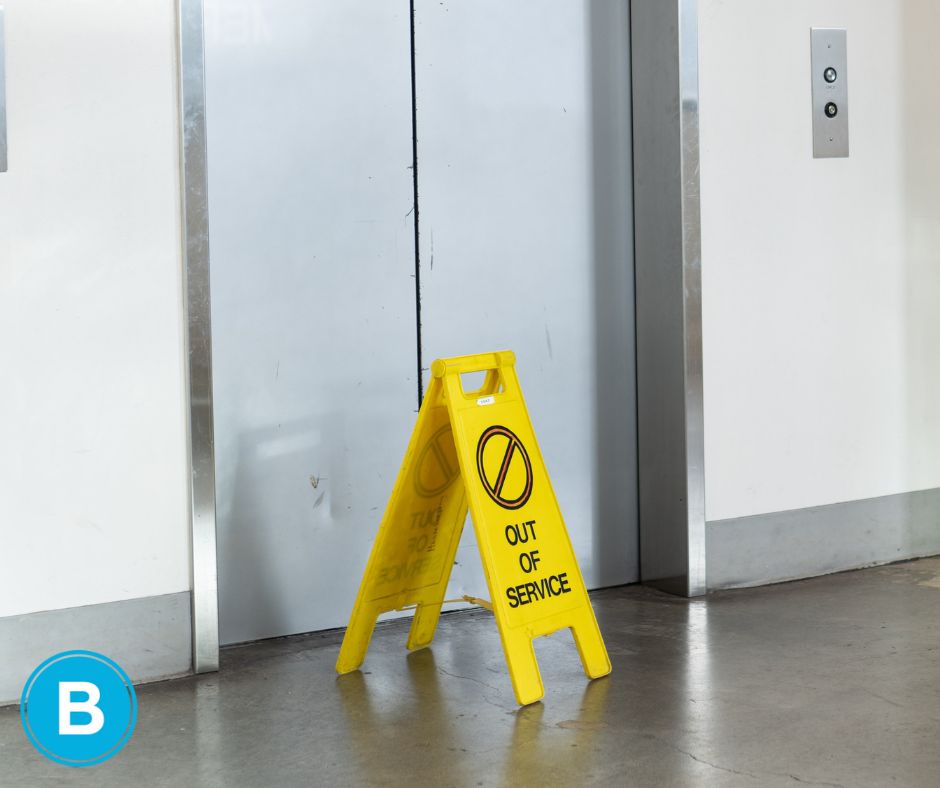
As Florida’s population continues to grow, locals are noticing a trend: housing is starting to go up since it’s out of room to grow out. With land filling up fast, more and more developers are creating high-rise buildings to house people and businesses. Those high rises mean more elevators, and that means a higher risk of elevator malfunction injuries.
Elevators are very helpful, but they can also be incredibly dangerous. According to the Center For Construction Research and Training’s (CPWR) shocking list of statistics gleaned from the Bureau of Labor Statistics (BLS) and the Consumer Product Safety Commission (CPSC), approximately 30 people are killed annually in elevator and escalator accidents. Nearly 17,000 people in the US are injured each year by elevators and escalators, with 90% of those serious injuries attributed to elevator accidents and malfunctions.
What can malfunction in an elevator?
There are many ways your elevator ride can go wrong. Some of the most common scenarios that cause elevator malfunction injuries include:
- malfunctioning of cables or doors
- elevator cars ascending or descending too quickly
- elevator cars failing to stop appropriately at each level – the floor of the car should be within half an inch of the corresponding level’s floor
- elevator failing to reach the next floor (resulting in falls down elevator shaft)
Many times, these accidents are the result of poor maintenance, or lack of maintenance altogether. In Florida, elevators are requried to have routine inspections and be certified as safe. If a business owner or property manager fails to keep up with required maintenance, inspections, and repairs, they could be liable for victims’ injuries.
For a free legal consultation, call 800 529 3030
What are the most common elevator malfunction injuries?

Falls down an elevator shaft are more common than you might think!
In the scenarios listed above, those riding on, or preparing to get on/off the elevator, could sustain serious, life-threatening injuries. Families of victims who have been injured or killed in elevator malfunction accidents report:
- internal injuries (from impact or from being crushed)
- broken bones
- traumatic brain injuries (TBIs)
- suffocation or strangulation
- spinal injuries
- sprains, abraisions, and lacerations
While not all elevator injuries are severe, most victims sustain severe trauma. An elevator accident killed a young athlete in Georgia when the car’s tension failed as he was getting off on his floor, and a nurse in Texas received a serious brain injury and internal injuries after an elevator accident.
How does Brooks Law Group help victims of elevator malfunction injuries in Tampa?
With Tampa’s increase in high-rise buildings, we know we’ll likely see an increase in elevator malfunction injuries as well. Our team of dedicated personal injury attorneys are here to advocate for victims and fight for justice.
How do we help?
Guidance, Protection, and Advocacy
The lawyers at Brooks Law Group offer legal guidance for Tampa victims injured by a malfunctioning elevator. We assist with laying out the steps of filing for compensation, and help families navigate the process from start to finish. As legal advocates, we protect victims and their loved ones from harassment by insurance companies or representatives of the opposing party(ies) and we advocate for their best interests on all fronts.
We collect and preserve the evidence.
Proving that your injuries were a direct result of negligence is a big part of our job. After your elevator accident, we’ll collect information like inspection reports, witness statements, repair and maintenance histories, medical reports, photos, videos, and more to ensure the story is clear. We take care of collecting and preserving this evidence so victims and their families can focus on healing.
We seek out maximum compensation on your behalf.
Elevator malfunction injuries, as referenced above, are often severe and extensive. These types of injuries can require weeks, months, or even years of treatment, therapy, and recovery. Because of this, we fight for maximum compensation following your accident. We get results, which provide for you and your family as you heal and recover.
Were you or someone you love injured in an elevator malfunction accident? Call our team to discuss your case for FREE. Following your no-risk consultation, you can choose our team to represent your case at no cost to you. Our contingency fee means you don’t pay unless we WIN.
Brooks Law Group is proud to provide legal representation to victims and their families throughout Central Florida. With offices in Tampa, Winter Haven, Lakeland, and Auburndale, you can count on us to help you fight for justice and compensation after your elevator malfunction injuries.
Accidents happen. When they do, Look to Brooks.
Call or text 800 529 3030 or complete a Free Case Evaluation form




